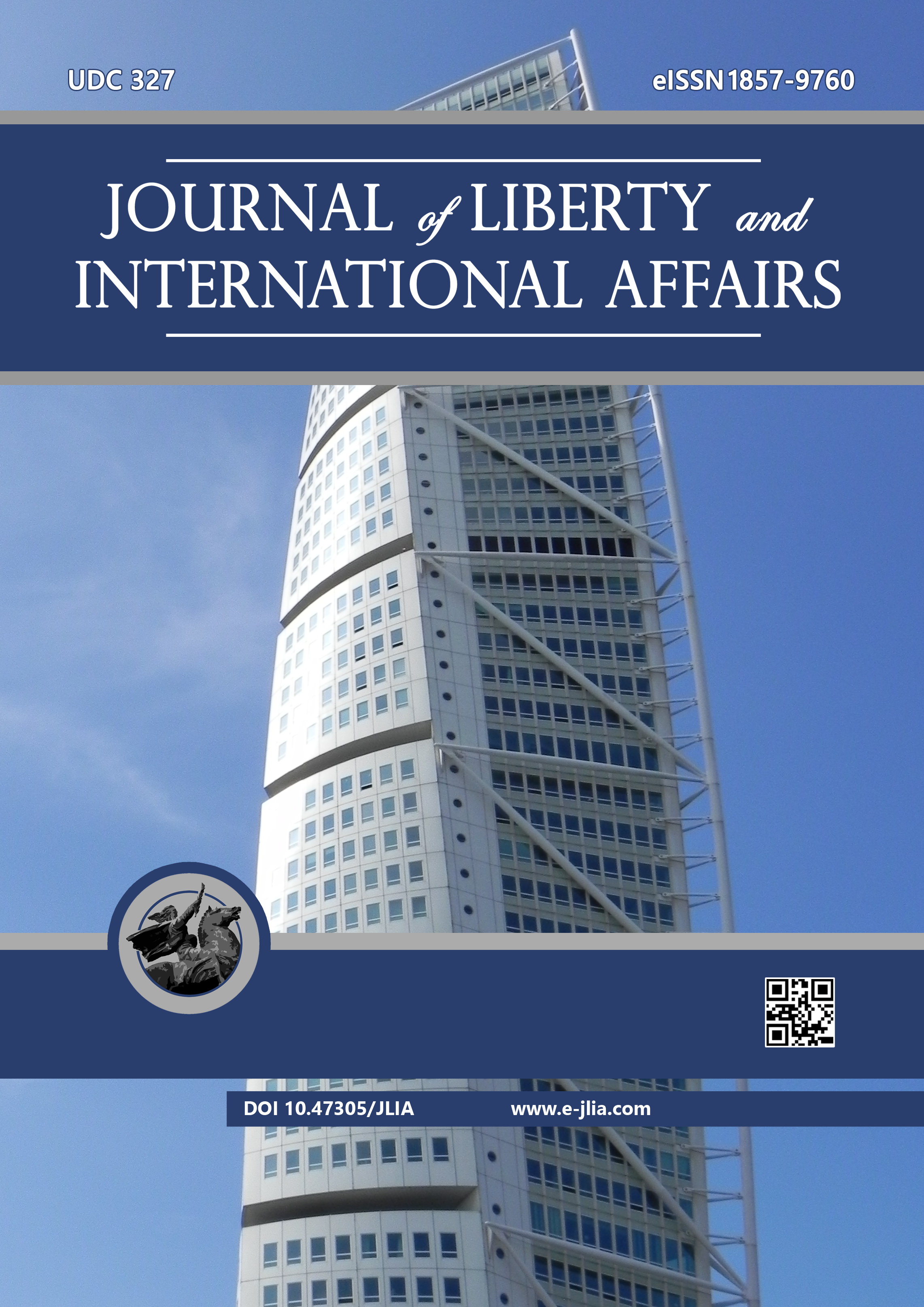UKRAINIAN FOREIGN POLICY TOWARD RUSSIA BETWEEN 1991 AND 2004: THE START OF THE CONFLICT
UKRAINIAN FOREIGN POLICY TOWARD RUSSIA BETWEEN 1991 AND 2004: THE START OF THE CONFLICT
Author(s): Stephen Adi Odey, Samuel Akpan BasseySubject(s): Politics / Political Sciences, Politics, History, Political Theory, Political Sciences, Governance, Diplomatic history, Military history, Political history, Social history, Government/Political systems, International relations/trade, Security and defense, Military policy, Welfare systems, Developing nations, Politics and law, Politics and society, History and theory of political science, Methodology and research technology, Comparative politics, WW II and following years (1940 - 1949), Present Times (2010 - today), Inter-Ethnic Relations, EU-Approach / EU-Accession / EU-Development, Geopolitics, Politics of History/Memory, Politics and Identity, Peace and Conflict Studies, Asylum, Refugees, Migration as Policy-fields
Published by: Institute for Research and European Studies - Bitola
Keywords: Ukraine; Russia; Foreign Policy; USSR; Identity
Summary/Abstract: Akpan BasseyAfter the dissolution of the Soviet Union in 1991, Ukraine's foreign policy evolved in the geopolitical sphere of Central and Eastern Europe. As a result, the new Ukrainian interests were built on a sense of national identity. They looked to Russia and Europe to find a sense of national identity. However, Ukraine's Eurasian and Central-European ancestry caused a distinct rift in society about national identity, which influenced the formulation of foreign policy. Those trying to co-exist with Russia find it difficult to develop a Ukrainian identity completely different from Russia, justifying the togetherness through the Pereyaslav agreement. On the contrary, the nationalist-minded Ukrainians, those who want to cultivate an identity distinct from the Russians and, more specifically, look for a Central-European identity, try to influence the course of the foreign policy formation of Ukraine by citing their historicity of Europeanness with the medieval princedom of Kiev and viewing the Pereyaslav memory as disastrous for Ukraine’s independent existence. Thus, national identity is one of the main causes of the Ukrainian-Russian conflict. This study aims to uncover significant events in Ukrainian foreign policy toward Russia that led to modern-day conflict.
Journal: Journal of Liberty and International Affairs
- Issue Year: 8/2022
- Issue No: 2
- Page Range: 346-361
- Page Count: 16
- Language: English

